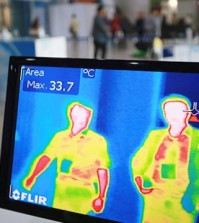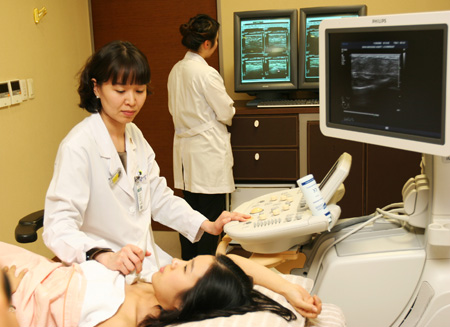- California Assembly OKs highest minimum wage in nation
- S. Korea unveils first graphic cigarette warnings
- US joins with South Korea, Japan in bid to deter North Korea
- LPGA golfer Chun In-gee finally back in action
- S. Korea won’t be top seed in final World Cup qualification round
- US men’s soccer misses 2nd straight Olympics
- US back on track in qualifying with 4-0 win over Guatemala
- High-intensity workout injuries spawn cottage industry
- CDC expands range of Zika mosquitoes into parts of Northeast
- Who knew? ‘The Walking Dead’ is helping families connect
S. Korean health officials accused of mishandling MERS epidemic
By Kim Rahn
Health authorities are facing criticism for allegedly mishandling the Middle East Respiratory Syndrome (MERS) outbreak, after a fourth patient claimed they ignored her voluntary call for testing and quarantine.
This revelation preceded news about two more suspected cases.
The Korea Centers for Disease Control and Prevention (KCDC) confirmed Tuesday that the fourth patient is the daughter of the third patient, six days after the first case was reported.
“The fourth patient, a woman in her mid 40s, is the daughter of the third patient, 76, who was in the same hospital ward where the first patient was reported” a KCDC official said. “We suspect she contracted the virus from the first patient just as her father did, while visiting the hospital for four hours.”
The first patient, 68, contracted the disease after visiting Bahrain, Saudi Arabia and the United Arab Emirates. His wife was also infected with the virus, becoming the second patient.
After her father was confirmed to have the virus, Thursday, the daughter asked the KCDC to test her and place her in an isolation ward.
The KCDC refused, telling her to stay at home and not to contact other people. It also ordered 63 others ― the first three patients’ family members and medical staff of the hospitals they visited ― to do so because the virus has an incubation period of 14 days. Their health was checked once every day.
The KCDC said the fourth patient originally only had a runny nose, and was sneezing and coughing but did not have a high fever. But she had a high fever Monday, so the KCDC moved her to an isolation ward and tested her, confirming the infection early Tuesday.
She is now in a stable condition, according to the KCDC.
After the confirmation, the KCDC was criticized for ignoring the patient’s voluntary request for a test and quarantine. This criticism grew after two more suspected cases were found ― a nurse and a doctor at two different hospitals the first patient visited.
They had high fevers and were moved to isolation rooms for testing. The test results have not been confirmed yet.
KCDC officials claim they followed due procedure.
“The fourth patient did not show a high fever or other respiratory ailments until Monday and we kept checking her condition. We also moved her and two medical staffers to isolation wards immediately after they began suffering from high fevers, so our system had no flaws,” the official said.
He said the KCDC is not considering raising the alert level for MERS from the current “caution.”
MERS is a new viral strain discovered in Saudi Arabia in 2012. It is mildly contagious, but its fatality rate is around 40 percent. More than 1,100 cases have been confirmed, of which 98 percent were in the Middle East. Infected people have a high fever, coughing and respiratory distress. No vaccine or treatment is available for the disease yet.

















